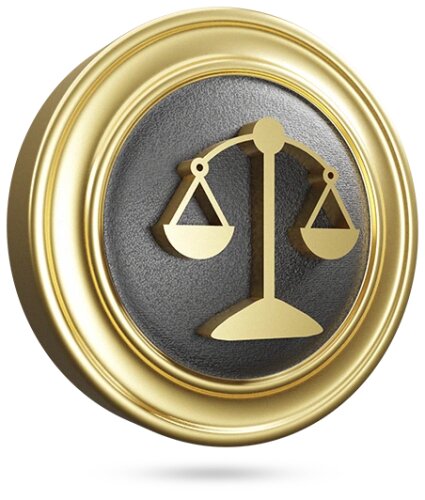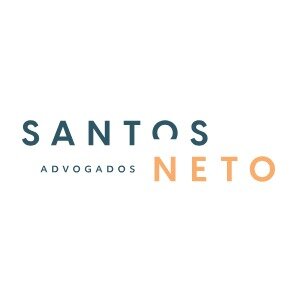Best Debt & Collection Lawyers in Brazil
Share your needs with us, get contacted by law firms.
Free. Takes 2 min.
Or refine your search by selecting a city:
List of the best lawyers in Brazil
About Debt & Collection Law in Brazil
Debt & Collection law in Brazil is a crucial component of the legal system, designed to regulate the relationship between creditors and debtors, ensuring ethical practices in the collection of debts. In Brazil, debt collection procedures must adhere to the standards of the Consumer Protection Code (Código de Defesa do Consumidor - CDC) and the Civil Code, among other legislative frameworks. The law seeks to balance the interests of creditors in reclaiming owed funds while protecting debtors from abusive practices.
Why You May Need a Lawyer
Individuals and businesses may require legal assistance in debt and collection matters for various reasons, including:
- Defending against abusive collection practices.
- Understanding and negotiating payment agreements.
- Ensuring compliance with legal procedures in debt disputes.
- Filing lawsuits for debt recovery.
- Assisting with bankruptcy or insolvency proceedings.
- Managing creditor negotiations in cases of financial hardship.
Legal representation can offer guidance, help protect your rights, and improve the outcomes of debt-related conflicts.
Local Laws Overview
Debt collection in Brazil is primarily governed by the Consumer Protection Code and the Civil Code. Some key aspects include:
- Prohibition of abusive, threatening, or harassing practices during debt collection.
- Requirement for transparent and fair terms in credit agreements.
- Ensuring debtors are informed of their rights, including the right to dispute debts.
- Judicial enforcement of debts must follow the due legal process, which might involve court proceedings.
- The possibility of negotiating instalment plans in certain cases of consumer debt, to facilitate payment.
Frequently Asked Questions
What constitutes abusive debt collection practices in Brazil?
Abusive practices include harassment, threats, misinformation, or publicizing the debt information to embarrass the debtor, which are all prohibited under the Consumer Protection Code.
Can I negotiate my debt directly with the creditor?
Yes, debtors can contact creditors to negotiate payment terms. It's advisable to have legal representation to ensure the agreement is fair and legally sound.
What are my rights if I am unable to pay my debts?
The debtor has the right to negotiate payment terms and receive fair treatment without harassment. Legal remedies, such as bankruptcy, may be pursued in certain situations.
How are debts enforced in Brazil?
Debt enforcement may involve judicial proceedings where a creditor seeks a court order to collect the owed amount. Execution of debts is strictly regulated by law.
Is it possible to dispute a debt claim?
Yes, if a debtor believes a debt claim is inaccurate or unfounded, they can dispute it. Legal advice is recommended to navigate this process effectively.
What happens if a collection agency contacts me?
Collection agencies must adhere to legal guidelines. You can request written communication and verify the debt's validity before making any payments.
Do I have to pay the debt if it's past the statute of limitations?
If the debt is beyond the statute of limitations, the debtor is not legally obligated to pay, although creditors may still request payment.
Can my wages be garnished to pay off a debt?
Yes, but wage garnishment is subject to legal limits, and some income types are protected from garnishment.
How can bankruptcy affect my debt situation?
Bankruptcy can provide a legal avenue to discharge certain debts, though it has significant implications and should be considered carefully with legal help.
Is legal representation mandatory in debt-related lawsuits?
While not mandatory, having legal representation greatly enhances your defense and negotiation position in court proceedings.
Additional Resources
For additional assistance and information, consider the following resources:
- Procon: The Consumer Protection and Defense Agency offers guidance and mediation for consumer-related disputes.
- The Brazilian Bar Association (OAB): Provides listings and resources for finding legal assistance.
- Judiciary Websites: Many state-level judiciary websites offer online services for debt consultation and resolution.
Next Steps
If you are facing debt-related issues and require legal assistance, consider the following steps:
- Evaluate Your Situation: Assess your financial condition and understand your debts fully.
- Consult a Lawyer: Seek a lawyer specializing in debt and collection law to explore your legal options.
- Negotiate with Creditors: With your lawyer, attempt to negotiate a fair repayment or settlement plan with creditors.
- Consider Mediation: Mediation can be a cost-effective way to resolve disputes without going to court.
- Follow Legal Advice: Adhere to the legal guidance provided to you to enhance your outcomes in debt resolution.
Acting promptly and informedly can help you navigate debt-related challenges more effectively.
Lawzana helps you find the best lawyers and law firms in Brazil through a curated and pre-screened list of qualified legal professionals. Our platform offers rankings and detailed profiles of attorneys and law firms, allowing you to compare based on practice areas, including Debt & Collection, experience, and client feedback.
Each profile includes a description of the firm's areas of practice, client reviews, team members and partners, year of establishment, spoken languages, office locations, contact information, social media presence, and any published articles or resources. Most firms on our platform speak English and are experienced in both local and international legal matters.
Get a quote from top-rated law firms in Brazil — quickly, securely, and without unnecessary hassle.
Disclaimer:
The information provided on this page is for general informational purposes only and does not constitute legal advice. While we strive to ensure the accuracy and relevance of the content, legal information may change over time, and interpretations of the law can vary. You should always consult with a qualified legal professional for advice specific to your situation.
We disclaim all liability for actions taken or not taken based on the content of this page. If you believe any information is incorrect or outdated, please contact us, and we will review and update it where appropriate.
Browse debt & collection law firms by city in Brazil
Refine your search by selecting a city.













